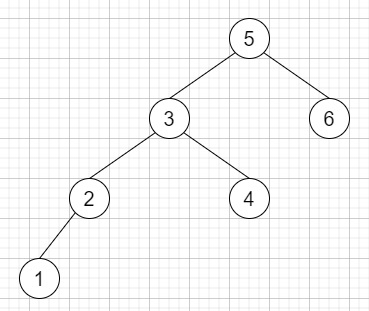
 Data Structure
Data Structure Networking
Networking RDBMS
RDBMS Operating System
Operating System Java
Java MS Excel
MS Excel iOS
iOS HTML
HTML CSS
CSS Android
Android Python
Python C Programming
C Programming C++
C++ C#
C# MongoDB
MongoDB MySQL
MySQL Javascript
Javascript PHP
PHP
- Selected Reading
- UPSC IAS Exams Notes
- Developer's Best Practices
- Questions and Answers
- Effective Resume Writing
- HR Interview Questions
- Computer Glossary
- Who is Who
Inorder Successor in BST II in C++
Suppose we have a node in a binary search tree, we have to find the in-order successor of that node in the BST. If there is no in-order successor, return null. As we know that the successor of a node is the node with the smallest key greater than value of node.
We will have direct access to the node but not to the root of the tree. Here each node will have a reference to its parent node. Below is the definition for Node −
class Node {
public int val;
public Node left;
public Node right;
public Node parent;
}
If the input is like −

and node is 2, then the output will be 3.
To solve this, we will follow these steps −
-
if right of node is not null, then −
node := right of node
-
while left of node is not null, do −
node := left of node
return node
-
while (parent of node is not null and node is not equal to left of parent of node), do −
node := parent of node
parent of return node
Example
Let us see the following implementation to get a better understanding −
#include <bits/stdc++.h>
using namespace std;
class Node {
public:
int val;
Node* left;
Node* right;
Node* parent;
Node(int v, Node* par = NULL){
val = v;
left = NULL;
right = NULL;
parent = par;
}
};
class Solution {
public:
Node* inorderSuccessor(Node* node) {
if (node->right) {
node = node->right;
while (node->left)
node = node->left;
return node;
}
while (node->parent && node != node->parent->left) {
node = node->parent;
}
return node->parent;
}
};
main(){
Solution ob;
Node *root = new Node(5);
root->left = new Node(3, root);
root->right = new Node(6, root);
root->left->left = new Node(2, root->left);
root->left->right = new Node(4, root->left);
root->left->left->left = new Node(1, root->left->left);
cout << (ob.inorderSuccessor(root->left->left))->val;
}
Input
Node *root = new Node(5); root->left = new Node(3, root); root->right = new Node(6, root); root->left->left = new Node(2, root->left); root->left->right = new Node(4, root->left); root->left->left->left = new Node(1, root->left->left); (ob.inorderSuccessor(root->left->left))->val
Output
3

